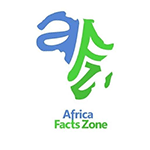What is African American Vernacular – Africa Facts Zone

African American Vernacular is a diverse American English spoken by lots of African Americans.
It has been called by numerous different names which includes African American English, Black English, Black English vernacular, ebonics, negro dialect, nonstandard negro English, Black talk, Blaccent, or Blackcent.
AAVE began in the ranches of the American South, where African individuals were subjugated to work, and it shares various phonological and linguistic highlights with southern lingos of American English.
Numerous African Americans are bi-dialectal in african american vernacular and Standard American English.
Also Read: 10 Largest National Parks in the US Vs 10 Largest National Parks in Africa
It is currently generally acknowledged that the vast majority of the language structure of African American Vernacular English (AAVE) gets from English dialectal sources — specifically, the pioneer tongues brought into the American South during the seventeenth and eighteenth centuries.
The foundations of AAVE were laid out during the 1st century of the British colonization of America, in the Chesapeake Bay region (Virginia and Maryland), and later, in the Carolinas and Georgia.
The socio-authentic proof proposes that circumstances in the vast majority of the South were positive for Blacks to gain generally close approximations of the dialects spoken verbally expressed by White settlers, especially obligated workers.
Since Blacks were exposed to various British English lingos and molded by impact from African dialects and perhaps at the same time from creole assortments presented by slaves brought from the Caribbean, African American vernacular developed against a background of continuing language contact.
What Exactly Is African American vernacular?
African American Vernacular English is otherwise called Black English or Black Vernacular English and generally as “Ebonics,”.
This vernacular has remarkable phonology, sentence structure and jargon, and these qualities are conventionalized, implying that they’re utilized and understood by the wider speech community.
All things considered, you’ll likewise find that accents and some jargon in AAVE will vary from New York to New Orleans to Chicago, similarly as they would for some other geologically based vernaculars.
The Two Components of African American Vernacular
It is suggested that African American vernacular comprises of two particular parts: the General English [GE] part, which is like the syntax of OAD [Other American Dialects], and the African American [AA] part.
These two parts are not firmly incorporated with one another, yet follow inward examples of severe co-event.
The AA part is definitely not a total syntax, yet a subset of syntactic and lexical structures that are used in combination with much but not all of the grammatical inventory of GE.”
Also Read: Tips for Business Travellers to Africa
Examples
Verb Conjugation
“Sasha going to the store” or “Tyrone working Saturday night” are prime examples of this, and still means the same thing if the “is” were present.
“Tyrone be working Saturday nights” means that Tyrone regularly works on Saturday nights. To show that Tyrone has always worked Saturday nights, you’d say “Tyrone been working Saturday nights.”
Finna
- Meaning: About to. Replaced “fixing to” from Southern English.
- Example: I’m finna go to the store, you want anything
Wildin / whilin
- Meaning: To say or do something crazy. Synonymous with buggin or trippin.
- Example: That professor was whilin assigning us all that reading.
GOAT
- Meaning: Acronym that stands for Greatest Of All Time. Typically used to describe an icon.
- Example: Solange is the GOAT.
Source Credit: oxfordhandbooks.com, languagejones.com, thoughtco.com, babbel.com





